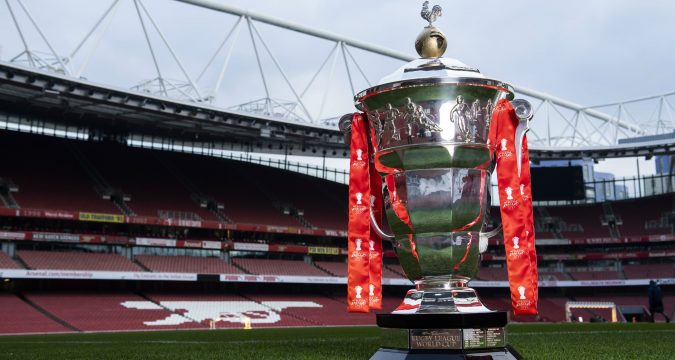
 Robert Burgin is an Australian who has been involved with the development of Rugby League in South and Central America for many years. He is currently the Football Manager of Brasil Rugby League. Here he gives his response to some recent decisions by the NRL.
Robert Burgin is an Australian who has been involved with the development of Rugby League in South and Central America for many years. He is currently the Football Manager of Brasil Rugby League. Here he gives his response to some recent decisions by the NRL.
Aside from trying to torpedo this year’s Rugby League World Cup, in the past 12 months the NRL has done the following:
• Refused to share coaching/refereeing development materials because it’s “our intellectual property”. Instead of paid officials producing materials for all, the onus falls on volunteers in developing nations to spend more unpaid time away from family developing new systems from scratch, which the NRL will undoubtedly question the legitimacy of anyhow.
• Sacked it’s long-serving International Development Manager and support staff, leaving a massive void of know-how in the sport.
• Failed to reply to numerous requests to identify players of international heritage on the Australian database.
• Refused to enter discussions to make NRL streaming more accessible to international audiences.
• Changed the laws of the game at extremely short notice in a way that benefits less than 25% of the nations playing the sport.
• Questioned the legitimacy and existence of overseas competitions, when these have run for years. How do you get to the top in the sport and not know who your customers are? It wouldn’t be accepted in any other industry.
Despite all the above, people such as Phil Gould have expressed an opinion that the NRL should control International Rugby League. I fully respect Phil’s track record of achievements in the sport, but I could not disagree more.
The NRL is littered with people who have next to no idea what occurs outside Australian borders, or even more pointedly, view the international aspect of the game as a distraction, hindrance or opponent.
The jewel in the crown of NRL’s international development is the Pacific Strategy, which appeals to precisely 4 million people in a world of 7.8 billion people. In other words, it caters to 0.05% of the planet’s population. I love what our Pacific Islander brothers and sisters bring to the sport, and it’s fantastic they have such high representation these days. But let’s face it, it took at least 80 years for Australian Rugby League to recognise their importance. Our efforts at international development shouldn’t start and stop on our own doorstep.
There’s a big difference between an international strategy for participation and an international strategy for fanbase growth. Supporters are seldom top-class athletes. Similarly, there is a difference between both these strategies and a strategy for growing the global commercial appetite for the sport.
Show me what the NRL has done in an international sense to grow either supporters or commercial investors outside the Pacific.
Our professional leagues are big fans of referring to the sport of Rugby League as a ‘product’ these days. It’s a neat way for careerists who have had no involvement in the sport since high school – other than drawing a pay packet from the game – to sound like they know what they are talking about.
These people have never had to pull together a team on the smell of an oily rag, learning what genuinely appeals to players and families. It’s been that long since they carted a ball into the teeth of the defence that they forget the exhilaration and warrior mindset the game elicits and requires. These people don’t exhibit the teamwork, the bent for practical logistical solutions, or the at-all-costs determination that the sport teaches its true exponents and proliferators each week.
But let’s go back to that term ‘product’, if that’s how it needs to be referenced. At the moment, there can be little doubt the ‘product’ stinks at the highest levels. I’ve never seen so many complaints from lifelong diehard fans, a growing disinterest and apathy, and a nagging sense within myself that this sport, its stars, and its operation do not align with my ideals anymore.
As someone who holds six voluntary positions in the game and has contributed about 2,000 unpaid hours every year for a decade, encouraging thousands of others to take up the sport, that’s a gut-wrenching, soul-searching point to reach.
There are a lot of tricks to fan and athlete engagement in a modern world, but being relatable, genuine and hard-working gives you a decent platform to work from.
If you want to dress up in suits and self-importance, and get measured on your ‘product’, ‘KPIs’ and ‘participation rates’, then you bloody well better be good at achieving good numbers. Based on what we are seeing, why should we be trusting the game’s current leaders with what they already exude power upon? Who on earth would want to hand over the control of the international game?
I’ve bitten my tongue hard for the past year, trying to play the diplomatic game. I’m aware that in my role as an administrator in new territories, I should be encouraging people to see Rugby League through the same loving eyes I had as a child. Yet, as a child, I was also frequently told to talk up when something is just not right.
What the NRL has done to the sport in 2021 is criminal. But it’s important we see Rugby League (the game) as separate to the NRL (the corporation).
And more is the point, it should stay that way.
The above content is also available in the regular weekly edition of League Express, on newsstands every Monday in the UK and as a digital download. Click here for more details.
